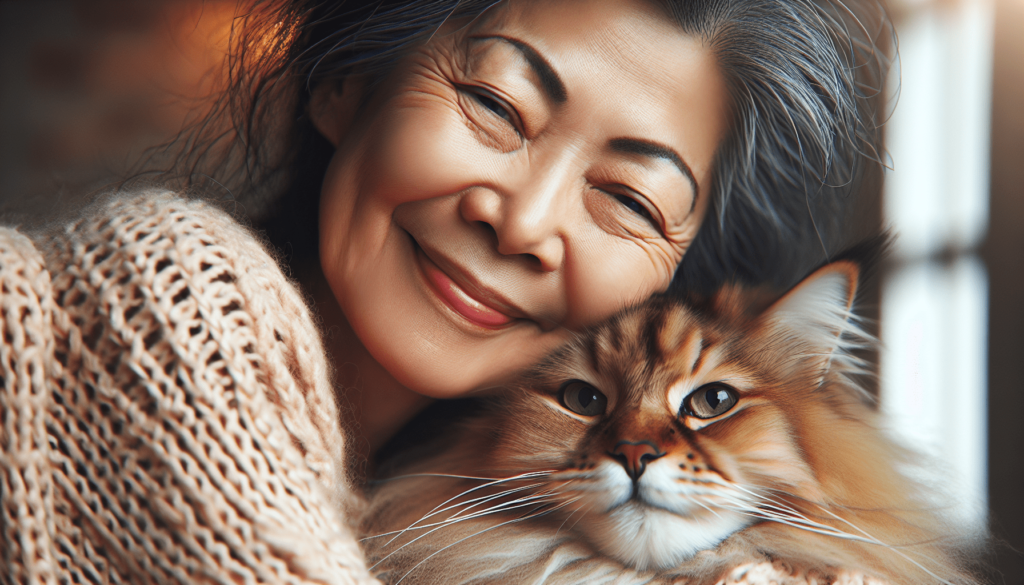Why do people become so attached to their pets?
Have you ever wondered why people become so attached to their pets? It’s not just about having a furry friend to cuddle with; there are psychological reasons behind the strong bond between humans and their pets. Let’s delve into the psychology behind pet attachment and explore what makes this relationship so special.
The evolutionary perspective
From an evolutionary standpoint, the bond between humans and animals goes back thousands of years. Animals were initially kept for utilitarian purposes, such as hunting, protection, and companionship. Over time, this relationship evolved into a more emotional connection, with pets providing comfort, support, and unconditional love to their human companions.
The social support hypothesis
Research has shown that pets can provide valuable social support to their owners, particularly during times of stress or loneliness. Pets offer companionship, a listening ear, and a sense of security that can improve mental well-being and reduce feelings of isolation. The unconditional love and loyalty of a pet can fill a void in a person’s life, leading to a strong emotional attachment over time.
The attachment theory
Attachment theory, originally developed in the context of parent-child relationships, has also been applied to the bond between humans and their pets. According to this theory, individuals form strong emotional bonds with their pets based on a mutual need for comfort, security, and affection. Pets become a source of emotional support and companionship, much like a close friend or family member.
The benefits of pet ownership
The bond between humans and their pets is not only emotionally fulfilling but also comes with a range of physical and mental health benefits. Let’s explore some of the positive impacts of pet ownership on overall well-being.
Reduced stress and anxiety
Numerous studies have shown that spending time with pets can lower stress levels and reduce symptoms of anxiety and depression. The presence of a pet can trigger the release of oxytocin, a hormone known as the “love hormone,” which can promote feelings of relaxation and reduce cortisol levels, a stress hormone.
Increased physical activity
Owning a pet, especially a dog, can encourage you to be more physically active. Daily walks, playtime, and outdoor activities with your furry friend can help you stay active and maintain a healthy lifestyle. Regular exercise not only benefits your physical health but also boosts your mood and energy levels.
Improved social connections
Pets can serve as social catalysts, helping their owners connect with others and build meaningful relationships. Whether it’s chatting with fellow pet owners at the dog park or participating in pet-related events and activities, having a pet can create opportunities for social interaction and community involvement.
Enhanced sense of purpose
Caring for a pet gives you a sense of purpose and responsibility, as you must meet their daily needs and provide them with love and care. This sense of purpose can boost your self-esteem, confidence, and overall life satisfaction. Knowing that you are responsible for another living being can bring a sense of fulfillment and contentment to your life.
The science of pet attachment
The strong emotional bond between humans and their pets is supported by scientific evidence that highlights the profound impact of pet ownership on our brains and bodies. Let’s take a closer look at the science behind pet attachment and how it influences our mental and emotional well-being.
The role of oxytocin
Oxytocin, often referred to as the “love hormone” or “bonding hormone,” plays a key role in the human-animal bond. Studies have shown that interactions with pets can increase oxytocin levels in both humans and animals, promoting feelings of bonding, trust, and attachment. This hormone is responsible for strengthening the emotional connection between pet owners and their furry companions.
The power of touch
Physical touch, such as petting, cuddling, and grooming, releases feel-good hormones like oxytocin and dopamine in both humans and pets. This tactile interaction creates a sense of closeness, comfort, and security, reinforcing the bond between individuals and their pets. The act of touch fosters trust, communication, and emotional connection, enhancing the quality of the human-animal relationship.
The concept of co-regulation
Co-regulation refers to the mutual influence and regulation of emotions between individuals, such as humans and their pets. The presence of a pet can help regulate your emotions, reduce stress, and provide a calming effect on your nervous system. Pets are sensitive to our emotional cues and can offer support and comfort during times of distress or anxiety. This reciprocal emotional exchange strengthens the bond between pet owners and their furry friends.
The role of neurotransmitters
Neurotransmitters, such as dopamine and serotonin, play a significant role in regulating mood, emotions, and social behaviors. Interactions with pets can stimulate the release of these neurotransmitters, leading to feelings of happiness, pleasure, and contentment. The pleasure derived from spending time with pets reinforces the emotional connection and attachment between humans and their furry companions.

Coping with pet loss
The loss of a beloved pet can be a devastating and emotionally challenging experience, akin to losing a close friend or family member. Coping with pet loss requires time, support, and self-care to navigate the grief and healing process. Let’s explore some strategies for coping with the loss of a pet and honoring their memory.
Allow yourself to grieve
It’s important to acknowledge and honor your feelings of grief and loss following the death of a pet. Give yourself permission to mourn, cry, and express your emotions in a healthy and supportive way. Grieving is a natural and necessary process that allows you to come to terms with your loss and begin the healing journey.
Seek support from others
Reach out to friends, family members, and support groups who can offer compassion, understanding, and empathy during this difficult time. Talking openly about your feelings, memories, and experiences with your pet can help you process your grief and find solace in shared experiences. Surround yourself with those who offer comfort and support as you navigate the grieving process.
Create a memorial
Honoring the memory of your pet can be a meaningful way to pay tribute to the bond you shared. Consider creating a memorial, such as a photo collage, scrapbook, or keepsake box, to celebrate your pet’s life and legacy. Planting a tree, dedicating a garden, or setting up a memorial fund in your pet’s name can also provide a lasting tribute to their memory.
Take care of yourself
Self-care is essential during times of loss and grief, both physically and emotionally. Be gentle with yourself, practice self-compassion, and engage in activities that bring you comfort and peace. Eat nutritious foods, get plenty of rest, exercise regularly, and engage in relaxation techniques, such as meditation or deep breathing, to support your well-being during this challenging time.
Conclusion
The bond between humans and their pets is a special and unique relationship that offers companionship, support, and unconditional love. Understanding the psychology behind pet attachment can shed light on the emotional connection and benefits of pet ownership. Whether you have a cat, dog, bird, or any other furry companion, the bond you share with your pet is a powerful and enriching experience that brings joy, comfort, and fulfillment to your life. Cherish the love you have for your pet and celebrate the profound impact they have on your mental and emotional well-being.


